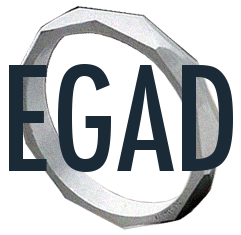Additional resources
![]() The following resources may be useful for the CEAB accreditation process:
The following resources may be useful for the CEAB accreditation process:
Background
![]()
The International Engineering Alliance (IEA) Graduate Attributes and Professional Competency Profiles outline Graduate Attributes and their relationship to professional competencies from an international, rather than purely Canadian, context. It provides some context for language used in the CEAB graduate attributes, including the meaning of “complex†problems.
Getting Started
![]()
Unsure of the ways that Graduate Attribute-based assessment and program review differs from AU methods? This page outlines 5 standard approaches to accreditation along with strengths, limitations and suggestions.
Borrowing from schools that have already undergone the accreditation process, we’ve prepared step-by-step outlines for planning program evaluation and suggestions for beginning the process.
Curriculum Mapping
![]()
Suggestions are offered on what to include as you map your program and is supplemented by a detailed PowerPoint presentation, created by Peter Wolf at the University of Guelph.
Continuous Curriculum Improvement
![]()
Learn how colleagues from other disciplines work to incorporate cycles of continuous curriculum review into their accreditation processes.
Improving teaching and learning through a continuous improvement process (article)
Assessment for Improving the Curriculum (Michigan Engineering)
Program-based review and assessment: Tools and techniques for program improvement (UMass, Amherst)
Collecting Data on Student Learning
![]()
Guidelines for collecting and triangulating data on student learning are provided.
Assessment
![]()
Information on selecting and writing indicators that define the Graduate Attributes in the context of your own program is provided. A vocabulary list to better define expectations for learning is also included as is information on setting targets and thresholds, and creating rubrics.
For help in selecting indicators that accurately reflect your institution’s interpretation of the Graduate Attributes, this comprehensive list of skills put together by CDIO may prove helpful.
Principles of good practice for assessing student learning (DePaul University)
Engineering Subject Centre Guide: Assessment of Learning Outcomes
Special assessment edition of the European Journal of Engineering Education
A direct method for teaching and assessing professional skills (Kranov, Hauser & Olsen)
Development of a scale to measure life-long learning (Kirby, Knapper, Lamon & Egnatoff)
Because attribute-based assessment invites the involvement of all stake-holders, we’ve included information on including students in the assessment process. Here you’ll find a Graduate Attribute Self-Assessment Questionnaire that was adapted from one used at the University of Dalhousie and an article on the use of e-portfolios from the students’ perspective.
Sample Cases
![]()
A number of participating universities have generously provided samples of their experience throughout the process. Visit the Sample Cases page for access to the full selection.
